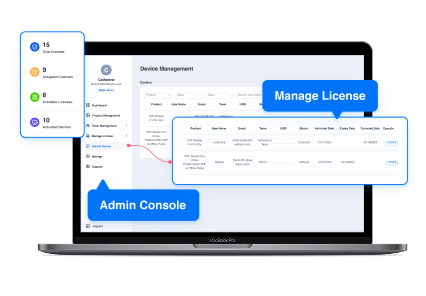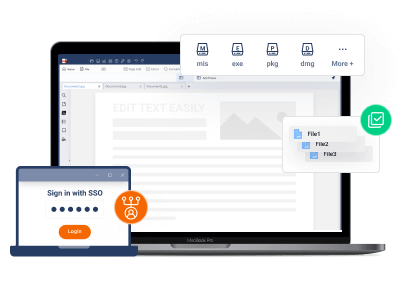
Canva PDF Editor Review: Features, Limits & Best Alternatives

Canva is well-known as a fashionable online design tool, and its PDF editor is also quite popular. But how capable is it really? And on some devices, searching for Canva PDF Editor and clicking on it does not result in a PDF Editor interface, which can be confusing for users. In this article, we will comprehensively analyze Canva PDF editor and provide detailed usage tutorials, hoping to solve your problem. Let’s dive in!
What Is Canva PDF Editor and What Can It Do?
Canva is an online design and publishing tool designed to help everyone easily design and publish any content. At the same time, it also provides some simple PDF editing functions.
Here are some of the key features Canva offers for PDF editing:
- Spelling autocorrect and real-time content refinement
- Add, delete, or modify images and text easily
- Freehand drawing tools and shape insertion
- Digital signatures support
- PDF merging and page reordering with drag-and-drop
- Split, extract, and insert PDF pages
- Collaborative editing for teams
- Export and share editable PDF files
These tools make Canva ideal for creating or updating presentation decks, handouts, digital forms, and promotional materials.
Limitations of Editing PDF Files with Canva
Despite its ease of use, Canva PDF Editor comes with several limitations that may affect users with more advanced needs:
-
Lack of professional PDF tools like form recognition, batch editing, OCR (optical character recognition), or advanced annotation features.
-
Output limitations: You can't fully customize resolution, file compression, or PDF standards (like PDF/A).
-
No offline access: Canva is entirely web-based, so editing is impossible without a stable internet connection.
-
Login requirement: You must create a Canva account to use the PDF editor, even for simple edits.
-
File compatibility: It may not work well with scanned or heavily formatted PDFs.
If your use case involves contracts, scanned documents, legal forms, or heavy markup, Canva may not be sufficient.
How to Edit PDF in Canva: Step-by-Step Guide
Editing a PDF in Canva is quick and beginner-friendly. Here’s how to do it:
Step 1: Go to Canva PDF Editor and click Upload File to import your PDF.
Step 2: Use the tools in the left-hand panel to start editing. You can modify existing text, replace or resize images, draw, add shapes, and insert Canva’s design elements.
Step 3: When you’re done editing, click the Download button in the top-right corner. You can choose the File Type (PDF standard or print) and select specific Pages. Alternatively, click the Share button next to Download to invite others to collaborate on the document.
This makes Canva suitable for quick team projects and visually engaging documents.
How to Use Canva to Create Editable PDF?
Canva is also great for creating a brand-new, editable PDF from scratch. Here's how:
Step 1: Visit Canva’s PDF Maker and click Make a PDF to start a new file.
Step 2: Use the left toolbar to insert text, images, shapes, and design elements (free or premium). Canva’s templates can help speed up the design process.
Step 3: Once finished, click Share and either download the PDF or click “+” (Add People) to enable real-time collaboration.
The result is an interactive, editable PDF that can be reused or shared with your team or clients.
Best Alternative to Canva PDF Editor for Full PDF Control
While Canva excels at simple design-oriented editing, it lacks the precision and functionality required for in-depth PDF work. If you need features like:
-
OCR to recognize text in scanned images
-
Batch processing of multiple PDF files
-
Compare different versions of PDF files
-
Offline PDF editing on desktop or mobile
Compared to Canva PDF editor, PDF Reader Pro is a more robust, multi-platform solution. It allows full-text recognition, multi-file work, lets users merge, split, sign, comment on, and convert PDFs without limitations or login.
Final Thoughts: Should You Use Canva to Edit PDFs?
Canva PDF Editor is a good choice for lightweight PDF edits and design-focused tasks. If you want to tweak a resume, enhance a portfolio visually, or collaborate on a presentation-style PDF, Canva does the job well.
However, for more advanced editing, you’ll need a more powerful tool. That’s why we recommend trying PDF Reader Pro, a full-featured alternative built for everyday and professional PDF tasks. Try it and get your workflow smoother now!

 Free Download
Free Download  Free Download
Free Download 
